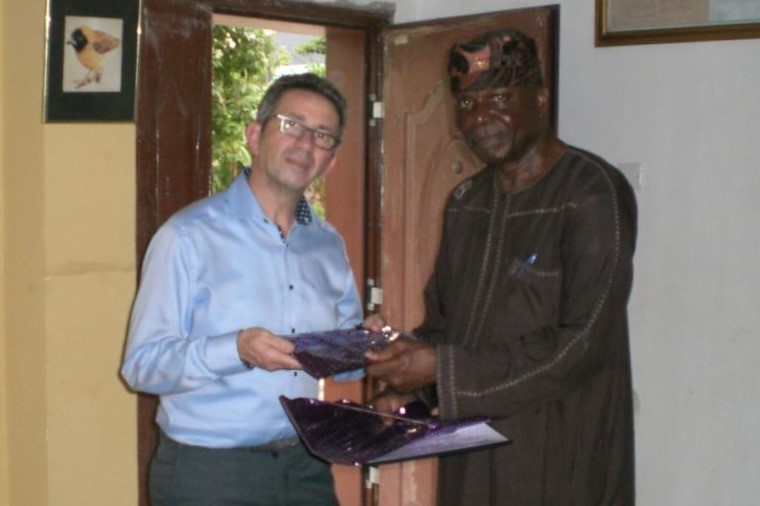Against the backdrop of government’s recent ratifying of the Paris Climate Agreement, an environmentalist and climate change negotiator has listed a set of next-steps to ensure that Nigeria keeps to her commitment on compliance to the world order, especially as it relates to sustainable development.

Prince Lekan Fadina, head of the Lagos-based Centre for Investment, Sustainable Development, Management and Environment (CISME), in a presentation titled: “Setting the tone: An evolution of sustainable development – Nigeria context” and delivered on Monday, March 3, 2017 at the GRI Standards Training Programme in Lagos, wants the country to:
- Accept that the content of the Paris Climate Agreement and the Sustainable Development Goals (SDGs) have set the scene, they have become narratives and as such we must key into the sustainability trends which make Global Reporting Initiative (GRI) and Carbon Disclosure Project (CDP) an important globally adopted framework.
- Recognise that access to global funds and investment opportunities now demand companies to manage their environmental impacts incorporate the sustainability indicators into their projects and provide investors with information on Climate Change and Sustainable Development.
- Look at all the elements we have learnt from the Millennium Development Goals (MDGs), the gaps that are there and what we need for a transformation agenda.
- Understand the means of implementation, funding, capacity building, technology, human capital, institutional transformation, attitudinal change and co-operation.
- Ensure buy-in through implementable legislation and participation of all the arms of government-legislative, executive and judiciary.
- Address the accountability framework for NDC and SDGs that look at shared responsibility to deliver the Agenda of carbon reduction. This Programme set the way to that path.
- Urgently push for clean energy innovation. This is one of the recommendations of the International Agency in its released- Energy Technology Report (Technology Perspectives 2015 (ETP2015).
- Government and private sector must shift their focus to lowcarbon technologies and investment.
- The climate-focused service and production demand new knowledge and new approach
Fadina, a member of the Africa Group of Negotiators (AGN) as well as the AGN Finance Co-ordination Committee, stresses that opportunities abound for enlightened businesses willing to stand up and address inherent development-related challenges.
His words: “We must act quickly, decisively and collectively to ensure a fairer and more prosperous world for all of us. Nigeria cannot afford to be lukewarm to the challenge of sustainability and the need to mainstream green path approach to its development.
“I am aware that a Committee was set up recently on the implementation of the SDGs. We humbly suggest that, in view of the potential threat that the green development approach could pose to an economy that is heavily dependent on fossil fuel, we need to intensify the diversification of our economy. The green economy provides a good opportunity to encourage public private partnerships as well as the involvement of nongovernmental organisations in the process.
“Globalisation, the Paris Climate Agreement, the Sustainable Development Goals and other initiatives have introduced many challenges. They have made sustainable development an imperative not an option. There is the need to build skills, knowledge, invest in education and change the mindset to ensure proper utilisation of resources and meeting the needs of the present without compromising the ability of the future. We must all, government, private sector, multinational organisations, and developing partners join hands to face the challenge of creating a better world and improved sustainable livelihood of our people.
“We as custodians of nature resources will be judged by future generations by what we do. This Seminar on Global Reporting Initiative (GRI) and Carbon Disclosure Project (CDP) is the path to achieving the goal of sustainable development. It must be emphasised that reporting, disclosure and accountability are veritable tools for monitoring, reporting and verification (MRV). The Paris Climate Agreement expects each country to keep to her commitment she signed and ratified on the National Determined Contribution (NDC) to limit her carbon emission.”
